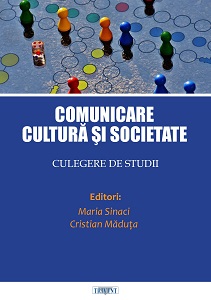Idei pedagogice inovatoare în opera lui Ștefan Bârsănescu
Innovative Pedagogical Ideas in the Work of Ștefan Bârsănescu
Author(s): Sorin Ovidiu Bulboacă
Subject(s): Social Sciences, Education
Published by: Trivent Publishing
Keywords: pedagogy; culture; ideas; school; purpose of education
Summary/Abstract: Ştefan Bârsănescu was a correspondent member of the Romanian Academy, a Romanian pedagogue and essayist, member of the Chicago Savings Association (USA). His scientific work accounts for more than 30 volumes and over 500 articles published in the country and abroad. Stefan Barsanescu attended seminar studies in Buzau and university studies in Iasi, obtaining a law degree in 1919 and then in philosophy in 1921. He later studied in Germany, obtaining the title of doctor on Emil Boutroux, his life, opera and philosophy. His teaching in Iasi includes periods of activity as an assistant at the Department of Psychology of the University of Iasi, then as director of the Normal School of Boys "Vasile Lupu" in Iasi. In 1933, he became a professor at the Pedagogical Department of the University of Iasi. Stefan Bârsănescu's scientific works covers fundamental themes in education sciences - general pedagogy, history of pedagogy, pedagogy of culture, pedagogical epistemology. Stefan Barsanescu, a disciple of Eduard Spranger, is the most important Romanian representative of the Pedagogy of Culture. From this perspective, the purpose of education is the cultural personality, characterized by the mastery of a wide circle of knowledge, the ability of man to devote himself to good, truth, beauty, and to create cultural values. The concept of cultural personality included moral personality. Truth, good and beauty are eternal values beyond time and space.
Book: Comunicare, cultură şi societate. Culegere de studii
- Page Range: 80-91
- Page Count: 12
- Publication Year: 2017
- Language: Romanian
- Content File-PDF

